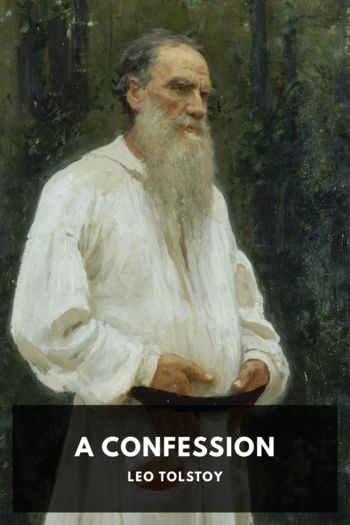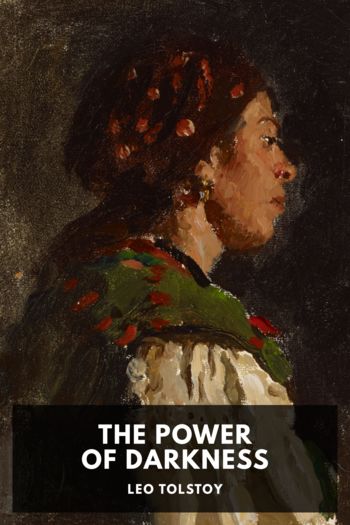Resurrection by Leo Tolstoy (best sci fi novels of all time TXT) 📕

- Author: Leo Tolstoy
Book online «Resurrection by Leo Tolstoy (best sci fi novels of all time TXT) 📕». Author Leo Tolstoy
Not only moral, but also most practical questions he decided in his own way. He applied a theory of his own to all practical business, had rules relating to the number of hours for rest and for work, to the kind of food to eat, the way to dress, to heat and light up the rooms. With all this Símonson was very shy and modest; and yet when he had once made up his mind nothing could make him waver. And this man had a decided influence on Máslova through his love for her. With a woman’s instinct Máslova very soon found out that he loved her. And the fact that she could awaken love in a man of that kind raised her in her own estimation. It was Nekhlúdoff’s magnanimity and what had been in the past that made him offer to marry her, but Símonson loved her such as she was now, loved her simply because of the love he bore her. And she felt that Símonson considered her to be an exceptional woman, having peculiarly high moral qualities. She did not quite know what the qualities he attributed to her were, but in order to be on the safe side and that he should not be disappointed in her, she tried with all her might to awaken in herself all the highest qualities she could conceive, and she tried to be as good as possible. This had begun while they were still in prison, when on a common visiting day she had noticed his kindly dark blue eyes gazing fixedly at her from under his projecting brow. Even then she had noticed that this was a peculiar man, and that he was looking at her in a peculiar manner, and had also noticed the striking combination of sternness—the unruly hair and the frowning forehead gave him this appearance—with the childlike kindness and innocence of his look. She saw him again in Tomsk, where she joined the political prisoners. Though they had not uttered a word, their looks told plainly that they had understood one another. Even after that they had had no serious conversation with each other, but Máslova felt that when he spoke in her presence his words were addressed to her, and that he spoke for her sake, trying to express himself as plainly as he could; but it was when he started walking with the criminal prisoners that they grew specially near to one another.
VUntil they left Perm Nekhlúdoff only twice managed to see Katúsha, once in Níjni, before the prisoners were embarked on a barge surrounded with a wire netting, and again in Perm in the prison office. At both these interviews he found her reserved and unkind. She answered his questions as to whether she was in want of anything, and whether she was comfortable, evasively and bashfully, and, as he thought, with the same feeling of hostile reproach which she had shown several times before. Her depressed state of mind, which was only the result of the molestations from the men that she was undergoing at the time, tormented Nekhlúdoff. He feared lest, influenced by the hard and degrading circumstances in which she was placed on the journey, she should again get into that state of despair and discord with her own self which formerly made her irritable with him, and which had caused her to drink and smoke excessively to gain oblivion. But he was unable to help her in any way during this part of the journey, as it was impossible for him to be with her. It was only when she joined the political prisoners that he saw how unfounded his fears were, and at each interview he noticed that inner change he so strongly desired to see in her becoming more and more marked. The first time they met in Tomsk she was again just as she had been when leaving Moscow. She did not frown or become confused when she saw him, but met him joyfully and simply, thanking him for what he had done for her, especially for bringing her among the people with whom she now was.
After two





Comments (0)